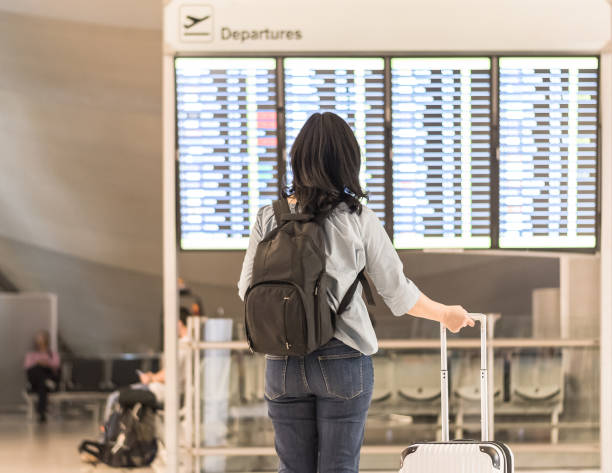Here's the Truth. When's the Best Time to Buy an Airfare?
Are you looking to get the absolute lowest price on plane tickets? Some experts say book last minute… Others say the lowest fares are on Wednesdays.
If you’ve spent any amount of time shopping for flights, you probably know that airfares change a lot. Airlines will tell you that the price fluctuations are based on meticulous real-time calculations to match supply and demand, but to travelers the ups and downs seem random, totally unpredictable, and utterly without rhyme or reason.
Here are 5 additional pieces of advice that we are able to glean from this massive study. Keep in mind that our focus here is on domestic flights – those within the U.S. Click here for our discoveries about the best time to buy international flights.
1. When You Buy Matters
A graph of the best fare by the numbers of days booked in advance looks deceptively smooth, aside from the sharp rise once you get inside 14 days. At 320 days out when we started looking, average fares were about higher than their low point. Prices dropped gradually until 47 days out and after that they started to rise again slowly. Once inside of 14 days they shot up pretty significantly.
But the smoothness of this graph belies the true volatility of the market. It looks smooth only because we are aggregating such a large number of individual trips. The spikes and dips even out over such a large dataset. But our study confirms that the price volatility when buying an airline ticket is more like buying a share of stock than buying something at Target. The lowest possible prices change on average 70 times during the booking window we looked at – that’s once every 4 ½ days! And even if we ignore the super-pricey booking period of within 14 days, the average difference between the best low fare and the worst low fare was a whopping during the time a trip was available for sale! So the date you pick to book your flight absolutely makes a huge difference.
2. Waiting for Last Minute Deals is a Bad Idea
The easiest and most obvious conclusion we can draw is that you should buy your ticket at least 14 days in advance. The Boston to Detroit example above was an outlier. Fares are almost always more expensive at the last minute. Tickets purchased within 14 days were more, on average, than those purchased further in advance; tickets purchased within seven days were more. So don’t believe the myth that never seems to die that a day before flight time airlines will practically give away their unsold seats. That doesn’t happen. Give yourself 14 days advance purchase at the very least; or better yet, 21 if you can swing it.
3. Be Careful Not to Book Too Early
In years past when we looked at numbers we came to the conclusion that the worst thing you could do was to buy your ticket too late but the second worst thing you could do was to buy your ticket too early. That’s still true, but the “penalty” for buying a ticket too early is less significant than in years past.
Airlines have historically come out with really high fares when flights open for sale, let them sit for a while, and then introduce various sales a few months before flight time in a mad scramble to fill all the empty seats. Airlines don’t have to do as much scrambling. Fares still tend to be lower a few months before travel than they are 11 months before travel, but that difference is not as pronounced as it used to be. Still, on average, domestic flights open up for sale about higher than their ultimate lowest price – and they typically stay that way for many months.
4. One to Four Months Out is the “Prime Booking Window”
The general pattern is that from the time a flight opens for sale, fares will drop slowly but steadily until reaching a low point somewhere between 27 days and 114 days out. That three month window, which is essentially between one and four months in advance, is what we call the “prime booking window”. Much more often than not, the best fare for a domestic trip will be offered at some point during that window.
If you don’t book within this window, it is generally better to book too early than too late. Those booking more than 114 days out paid an average of more for their flight in 2014, those booking inside 27 days paid an average of more.
5. For Summer and Holiday Travel, the Rules are a Little Different
There are important exceptions to these patterns, mostly for very popular routes during very popular times where flights tend to fill up quickly and the most optimal time to buy tends to be earlier than the normal one to four months.
In 2014, demand for air travel continued to increase and airlines kept supply in check for the whole summer. June to August began to look a lot like the special holiday seasons. For summer travel last year, the best time to book was 76 days in advance on average – almost a month earlier than the rest of the year. And the danger in booking too early was much less pronounced. Fares booked 320 days in advance were, on average, only more than their low point. More than ever before, air travel has become a seller’s market, especially in the peak seasons, and the airlines don’t have to be as aggressive as they used to in order to fill all their seats. This means that the deals you see early on for peak season flights are increasingly likely to be among the best deals that will be offered.




Comments
Post a Comment